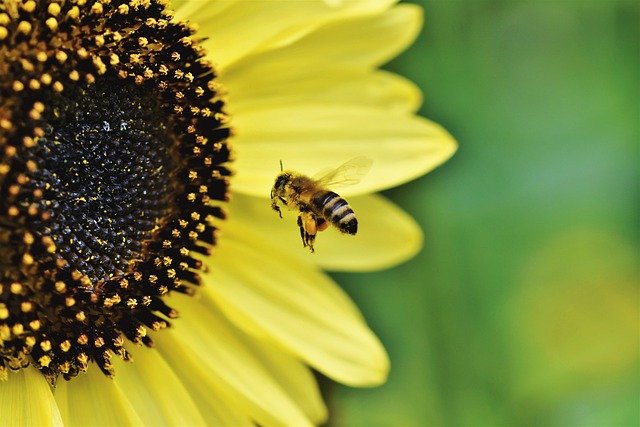
One of the most effective and natural ways to improve the health of your organic garden is by attracting beneficial insects. These insects, including pollinators and natural predators, help control pests and enhance pollination, leading to healthier plants and more bountiful harvests. By planting specific flowers, you can create a vibrant ecosystem that supports beneficial insects. Here’s a guide to flowers that attract beneficial insects and how to incorporate them into your garden.
1. Why Attract Beneficial Insects?
Beneficial insects play crucial roles in the garden:
- Pollinators: Insects like bees, butterflies, and moths pollinate flowers, which is essential for the production of fruits and seeds.
- Natural Predators: Predatory insects such as ladybugs, lacewings, and parasitic wasps help control pest populations, reducing the need for chemical interventions.
- Biodiversity: Attracting a variety of beneficial insects increases garden biodiversity, which can lead to a more resilient and balanced ecosystem.
2. Top Flowers to Attract Beneficial Insects
Here are some of the best flowers to plant for attracting beneficial insects:
a. Marigolds (Tagetes spp.)
- Benefits: Marigolds attract predatory insects like ladybugs and hoverflies, which feed on aphids and other pests.
- Planting Tips: Plant marigolds around vegetable gardens and flower beds. They thrive in full sun and well-drained soil.
b. Yarrow (Achillea millefolium)
- Benefits: Yarrow attracts a wide range of beneficial insects, including predatory wasps, ladybugs, and lacewings.
- Planting Tips: Grow yarrow in full sun and well-drained soil. It is drought-tolerant and easy to maintain.
c. Lavender (Lavandula spp.)
- Benefits: Lavender attracts pollinators such as bees and butterflies while also repelling some common pests.
- Planting Tips: Plant lavender in sunny, well-drained locations. It prefers slightly alkaline soil and requires minimal watering once established.
d. Dill (Anethum graveolens)
- Benefits: Dill attracts predatory wasps and hoverflies, which prey on aphids and caterpillars.
- Planting Tips: Grow dill in full sun and well-drained soil. Allow some dill to flower and set seed to provide continuous benefits.
e. Sunflowers (Helianthus spp.)
- Benefits: Sunflowers attract pollinators like bees and butterflies and provide a habitat for predatory insects such as beetles and spiders.
- Planting Tips: Plant sunflowers in sunny spots with well-drained soil. They are easy to grow and can tolerate poor soil conditions.
f. Alyssum (Lobularia maritima)
- Benefits: Alyssum attracts beneficial insects like hoverflies, which feed on aphids and other pests.
- Planting Tips: Grow alyssum in full sun to partial shade and well-drained soil. It works well as a ground cover or border plant.
g. Borage (Borago officinalis)
- Benefits: Borage attracts pollinators such as bees and also repels some pests like tomato hornworms.
- Planting Tips: Plant borage in full sun and well-drained soil. It is a self-seeding annual that can come back year after year.
h. Cosmos (Cosmos spp.)
- Benefits: Cosmos attracts a variety of pollinators, including bees and butterflies, as well as predatory insects like lacewings.
- Planting Tips: Grow cosmos in full sun and well-drained soil. Deadhead spent flowers to encourage continuous blooming.
3. Designing a Beneficial Insect Garden
To maximize the benefits of these flowers, consider the following tips when designing your garden:
- Diverse Plantings: Plant a variety of flowers to attract different types of beneficial insects. Diversity helps create a balanced ecosystem.
- Succession Planting: Plan for a succession of blooms to provide continuous food sources for beneficial insects throughout the growing season.
- Companion Planting: Integrate beneficial insect-attracting flowers with your vegetable and herb gardens. This promotes pest control and enhances pollination.
- Pesticide Avoidance: Avoid using chemical pesticides, as they can harm beneficial insects. Opt for organic pest control methods instead.
4. Maintaining Your Beneficial Insect Garden
Regular maintenance helps ensure your garden remains a welcoming habitat for beneficial insects:
- Watering: Provide consistent watering, especially during dry spells. Most beneficial flowers thrive with regular moisture but avoid overwatering.
- Deadheading: Remove spent blooms to encourage continuous flowering and prevent plants from going to seed too early.
- Mulching: Apply organic mulch to retain soil moisture, suppress weeds, and improve soil health.
Attracting beneficial insects to your organic garden is a natural and effective way to enhance plant health and productivity. By incorporating a variety of flowers that support pollinators and natural predators, you can create a thriving ecosystem that benefits both your garden and the environment. Embrace the power of beneficial insects and enjoy the beauty and bounty of a healthy, balanced garden. Happy gardening!
